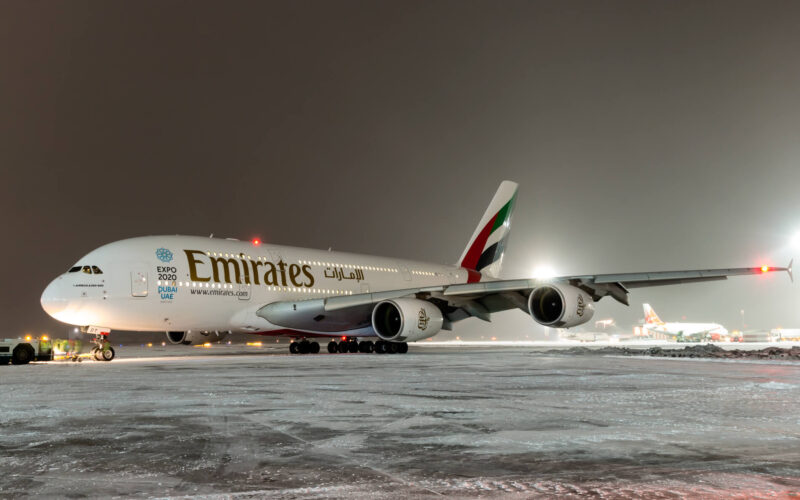While other airlines retire their Airbus A380 aircraft, Emirates airline plans to remain the world’s largest superjumbo operator in the future.
In an interview with Aviation Business, Emirates’ CEO Tim Clark said that despite COVID-19, Emirates’ A380s still had an important role to play in the airline’s business model in the future.
“[A380s] remain hugely popular with the traveling public. And with less of them around now, I should think we will do particularly well with this aeroplane when we get them all flying again,” said Clark. “The A380 was probably the best thing that could have happened to Emirates and certainly Dubai.”
Emirates airline current fleet
In March 2020, Emirates, which had almost half of all A380s in the world, grounded its fleet of 115 A380 jets due to the coronavirus crisis. On October 27, 2020, Emirates officially retired its first A380 jumbo jet, registered as A6-EDB. Emirates has 114 remaining A380s in its fleet, while eight are pending delivery.
During the pandemic, the A380 continues to serve passengers on key routes including Cairo, Paris, London Heathrow, Guangzhou, Moscow, and Amman. The airline still operates 31 weekly flights with the double-decker.
Back to profitability in the future?
On November 18, 2020, after the UK added the UAE to its travel corridor list, Emirates announced plans to operate A380 aircraft four times a day to London Heathrow from November 27, 2020. There are also flights to Manchester planned six times a week from December 2, 2020, and from a current two-a-week to a daily A380 service to Moscow from November 25, 2020.
“I believe that within the next 18 months, two years, we will return ourselves to profitability,” Clark told CNBC on November 15, 2020. “We will certainly be cash positive during the course of the back end of next year, returning to profitability in (financial year) 2022-2023,” he added. Clark is positive that with an increase of demand and the opening of travel corridors, the company can resume more of its operations.
Emirates might be one of the few carriers with a business model that could operate the superjumbo profitably. Clark confirmed that the airline was going ahead with its delivery schedule for eight A380 aircraft. The first ones should reach the airline in November and December 2020.
It seems that the A380 is included in Emirates’ plans for the future. “It’s been enormously successful for us, in many, many ways, directly and indirectly. So we will have to manage eventually the departure of the airplane. But we’re a long way off from that,” said Clark.
What’s next for Airbus A380?
Many global airlines have already decided to retire A380 from their fleets. Air France was one of the first to announce the retirement of its entire fleet of A380s. In the summer of 2020, Qantas confirmed that its fleet of 12 Airbus A380s would remain grounded for the next three years. Etihad Airways’ A380s future is also in doubt, since the airline confirmed the grounding of its superjumbos until at least the Winter 2021.
Japan’s All Nippon Airways (ANA) were the last ones to acquire A380s in the Spring 2019. Most of the companies are set to focus on newer, more efficient widebody aircraft like the Boeing 787 and the Airbus A350.
In response to increased demand for medical supplies, Emirates SkyCargo introduced its Airbus A380 converted to freighter. Recently, the new ‘mini-freighter’ successfully transported medical aid from Seoul to Amsterdam via Dubai. The air carrier optimized the capacity of the Airbus A380 to transport around 50 tons of cargo per flight.

